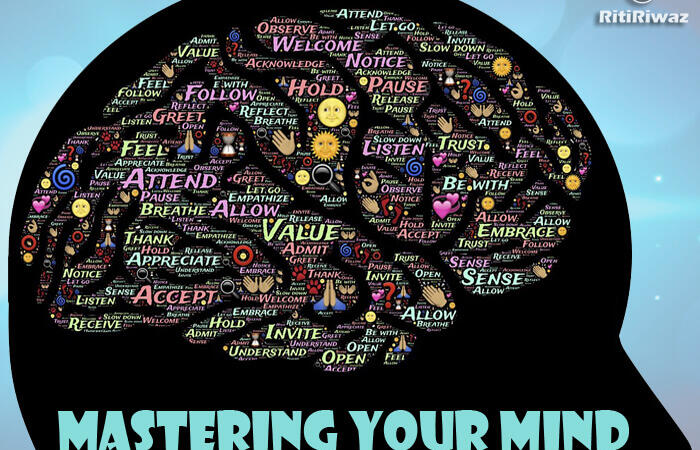Globalization And Its Impact On Society

The last two decades of the 20th century witnessed a worldwide crisis, which continues in the 21st century as well. This was a multidimensional crisis that encompassed different aspects of our life like social, cultural, ethical, and economical. There was a change from traditional to modern, national to global, old to new was seen. Now there is a choice between consumerism and materialism on one hand while non-violent and non-exploitative socio-economic order, on the other hand.
One aspect of change in society is the influence of western civilization indirectly through globalization. Other changes include degradation of the environment, rapid erosion of values, and cynicism about institutions. Another unfortunate development is the alienation of the younger generation as expressed in their rejection of tradition and loss of faith in the social, political, and cultural traditions. Other problems related to insecurity, disparities between and within the nations, poverty amidst plenty, and other phenomena, such as international terrorism.
The concept of globalization indicates the aspiration towards oneness by all countries and the desire to be a part of one uniform world order. The distances both physical and mental have to be reduced to zero. The ways and means of communication need to be advanced to enable people to live as a global family.
Towards the end of the 20th century, the world became unipolar and globalization was supposed to bring numerous benefits to the developing nations. The yawning disparities between the industrialized world and the third-world countries were reduced to an extent. This was achieved by accepting the models of economic management through reforms.
However, we observe consumption disparities at the beginning of the 21st century. In the globalized world, 20 percent of the world’s richest people account for 86 percent of total private consumption expenditure. The poorest, 20 percent, consume only 1.3 percent. The richest five consume 45 percent of all meat and fish while the poorest five consume 0.5 percent. In energy consumption, the richest five have 55 percent while the poorest five are left with hardly any. The gap between the rich and the poor is growing at a fast rate. Thus, the question is being raised as to whether globalization, can provide any solution to the world’s complex socio-economic problems.
Joseph Stiglitz, winner of the Nobel Prize for Economics made a certain observation in his book, “Globalization and its Discontents”. He commented that the Western countries acting through the International Monetary Fund (IMF) and the World Trade Organisation (WTO) have failed. They have mismanaged the process of privatization, liberalization, and stabilization. In addition to this, he also opined that by following their advice, many third-world countries are actually worse off now than they were before. He also said “Globalization today is not working, it is not working for many of the world’s poor. It is not working for much of the environment. It is not working for the stability of the global economy.
After independence, India adopted a policy of planned economy. But, unfortunately, the country failed to achieve the desired result for which it was pursued. So under the leadership of the then Prime Minister, Indira Gandhi, the initiation to liberalize the economy was started. Our economy slowly moved up toward globalization by opening up the economy to foreign investment and competition. Finally, the policy adopted by the next Prime Minister, Rajiv Gandhi, and his successor P.V. Narasimha Rao, helped to open our economy towards globalization. The New Economic Policy announced by P.V. Narasimha Rao 1991 aimed at making the Indian economy competitive and much better-integrated with the world economy. Globalization is the process by which a national economy moves towards a single borderless world economy with open markets. It is the expansion of markets for goods, services, capital, and labor beyond national boundaries.
The adverse impact of globalization is prominently felt in the developing and underdeveloped countries of the third world. Critics of globalization term this process as ‘neocolonialism’. Third-world societies are feeling the heat because liberalized economic policies and the decentralization processes being unleashed in these states are not backed up with adequate social security measures. As the human development standards in these countries are really low, they lack the conductive social and economic environment required for the proper implementation of globalization policies. Liberal free-market economy, which is considered to be the solution for underdevelopment and poverty by many has not lived up to its expectations.
If one has to provide a solution to the present-day discontentment, rising inequalities, prevailing social tensions, and psychological dysfunctions, then the search for an alternative world view becomes absolutely essential. It has been well recognized that no valid socio-economic paradigm can be built unless man’s relationship with the world is properly understood. The new world view offers a new paradigm for building a socio-economic system free from exploitation and also resolving the dilemma, which mankind is presently facing. The paradigm has universal applicability and addresses mankind as a whole. It requires attitudinal changes with regard to the relationship between human society and the ecosystem, consumption levels and growth rates with consequent changes in the value system.
Our choice is between a society having high affluence, but a tormented soul and a non-exploitative society caring like a family. One having social tensions, psychological dysfunctions, rising inequalities, violence and hatred all around, or one which has a reasonable standard of living with peace and harmony, in a non-violent, non-exploitative socio-economic order. An order free from the ills of consumerism and materialism. We could either choose a world functioning under the rules of the market forces and devoid of any emotional bonds, or we could choose a world full of fraternity and work, sharing and caring like a family.
The creation of this alternative paradigm is not really easy. Over the past five decades, the world has seen several models and paradigms, which failed to provide concrete results. What we really need is a globalized economy, but which is placed in a humane context. The policies should be introduced in such a way that the weaker sections of the society and their interests should be sufficiently protected by adequate social security measures. Because along with a vibrant economy, the developing world needs to improve health care, literacy rates, education, and a host of such social welfare standards in order to reap the rewards of globalization.
Suggested Read: World Development Information Day






